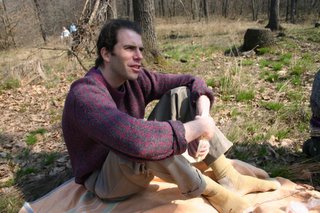Change for the Better
There's a lot of messiness in this world. And there aren't a lot of easy answers that people - especially people with vested interests worth losing - are willing to listen to and apply. "Only the very rich and very poor can appreciate poetry," I was once told. The same could be said, I think, for simple and radical proposed solutions.
Take this: global suicide. If everyone on Earth were to commit suicide at the same time, then all human problems (on Earth and in this life, anyway) would be solved. Crime, pollution, war, environmental desctruction, intellectual property disputes, war, divorce, abortion; etc., all of it would be over in one fell swoop. Get rid of the people and you get rid of their problems. The trouble is, only the dirt poor and the filfthy rich could entertain such a proposal. The former because life is so rotten and the latter because it can get no better. But the rest of us still think life is worth living, all its problems notwithstanding. Having a vested interest in being alive prevents us from seeing how ending all life could solve all of life's problems.
It's the same with a lot of "leaders." If you run an energy provider, for example, you find yourself in a network of supply chains that employ lots of people to supply power in particular ways from particular sources. So radical departures from that could mean - at first anyway - the loss of a lot of jobs, including your own. This explains why new energy production technology like that at www.blacklightpower.com isn't yet in widespread use. While it would free the world from dependence on oil, which many people say is desired, it would also deprive a lot of people in the oil business of a lot of money. And they're the ones in power who put a lot of effective effort into resisting such change.
To sum things up - with much more needed to be said - for beneficial change to happen, sacrifices have to be made. De Klerk had to give up his own job in order to end Apartheid. It is ironic that those very people who are the most able to effect positive change (beneficial even to them) are the ones who oppose it with the greatest verve.


0 Comments:
Post a Comment
<< Home